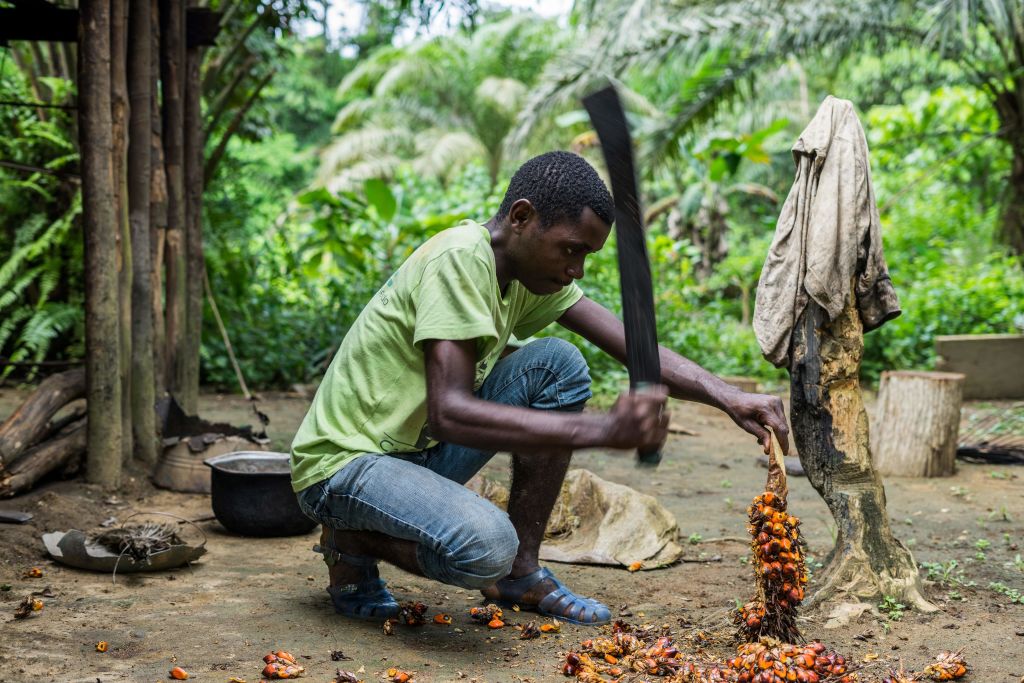Chinese Rubber Plantations in Cameroon Destroy the Lives and Livelihoods of the Baka
ADF STAFF
The Baka people of Cameroon have thrived amid the lush rainforests for thousands of years, but recently they have seen their lives upended by expanding Chinese rubber plantations.
“When they destroyed the forest, they were actually destroying our homes,” Baka village elder Moise Ndjelee told South Africa’s Daily Maverick.
Ndjelee and about 100 other Baka were evicted from their homes to make way for the 450-square-kilometer Sudcam rubber plantation. Today, the hunter-gatherers live in poverty and crowded conditions in the Bantu village of Nyabibéte.
Sudcam is the common name for Cameroonian-owned Sud Cameroun Hévéa, which is a subsidiary of China Hainan Rubber Industry Group, a state-owned enterprise (SOE), that took control of the largest Chinese rubber operations in Cameroon in early 2023. More than 60% of Hainan’s rubber goes directly to Asia.
Along with another Chinese SOE, Sinochem, Hainan Rubber has converted thousands of square kilometers of rainforests to exclusively rubber trees, destroying the Baka’s home and way of life along the way.
“The commodity that has the most problem with deforestation is rubber,” Samuel Nguiffo, director of Cameroon’s Centre for Environment and Development, told the Daily Maverick. “When you have a monoculture of one plantation, the biodiversity disappears.”
According to Global Forest Watch, between 2002 and 2021, Cameroon lost 1.8 million hectares of forest, an area slightly larger than the entire nation of eSwatini. While some land went to urban growth or mining, much of that lost forest was turned into rubber trees.
Sudcam cleared 10,000 hectares between 2011 and 2018, as part of more than 45,000 hectares it has cleared in total, according to the Environmental Justice Atlas (EJA).
The expansion of rubber plantations also threatens the nearby Dja Faunal Reserve, a UNESCO World Heritage Site prized for its biodiversity and Indigenous communities that rely on the forest. The reserve is home to 14 species of primates including mountain gorillas, forest elephants, forest buffalos and giant pangolins.
Sudcam stopped its expansion in 2018 within a few hundred meters of the reserve’s western edge.
“The legitimacy of this plantation is very doubtable, since there is no transparency on how they got the authorization to exploit that land,” EJA researchers report. “Overall, due to widespread corruption, an autocratic political regime, constant involvement of the ex-colonial power and little transparency, it is extremely difficult for people in Cameroon to obtain recognition of their rights.”
For the Baka who once lived on what is now Sudcam plantation land, the destruction of graves, sacred sites and their way of life is irreversible.
Even as they displace some Baka communities, Chinese rubber conglomerates encroach on others elsewhere in Cameroon. Protests go unheeded, according to Marie Ba’ane, director of the Cameroonian non-governmental organization APIFED (Organisation d’Appui à l’Autonomisation et Insertion des Femmes, des Jeunes et Désœuvres), known in English as the Support Organization for the Empowerment and Integration of Women, Young People and Unemployed.
“If nothing is done today to preserve the area and protect resources that belong to these communities, soon there won’t be anything left for these people who so depend on the forest,” Ba’ane told France 24. “Their very existence is now at stake.”


Comments are closed.